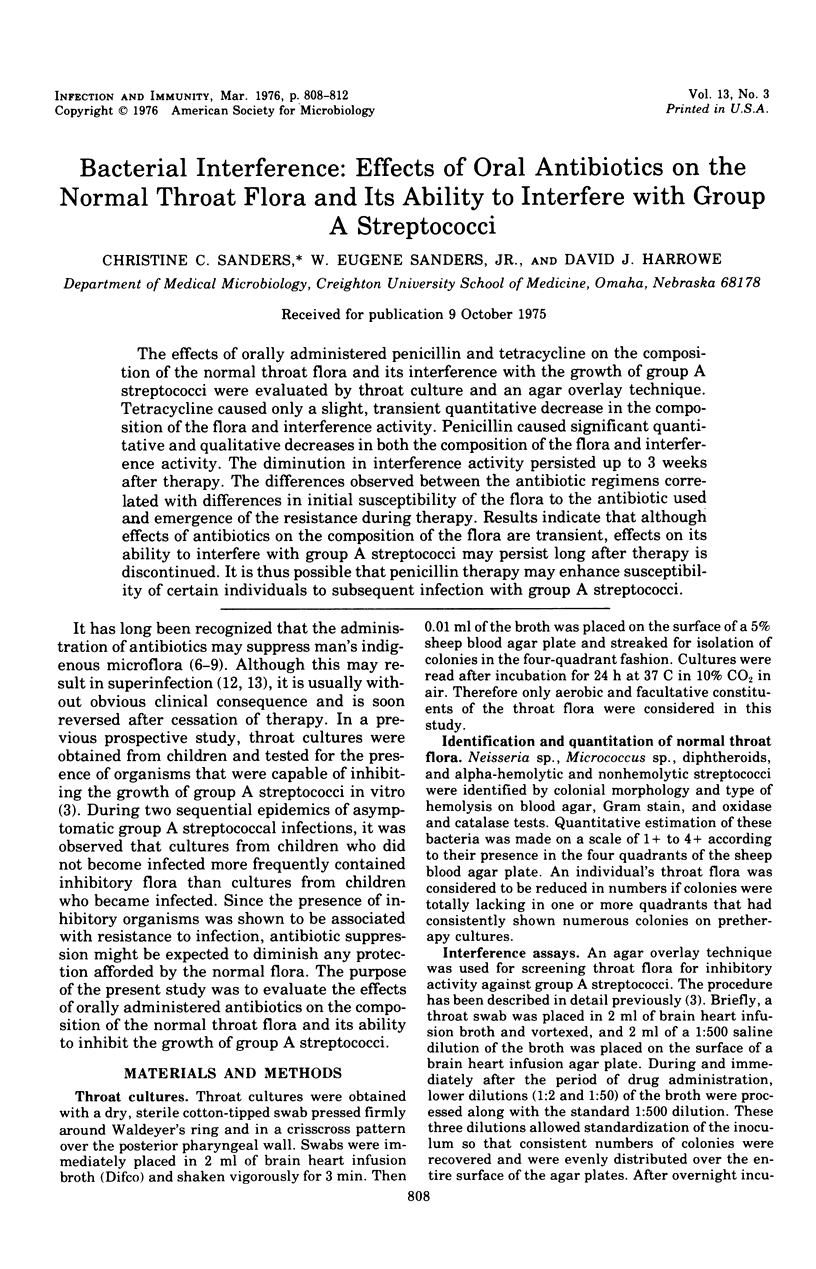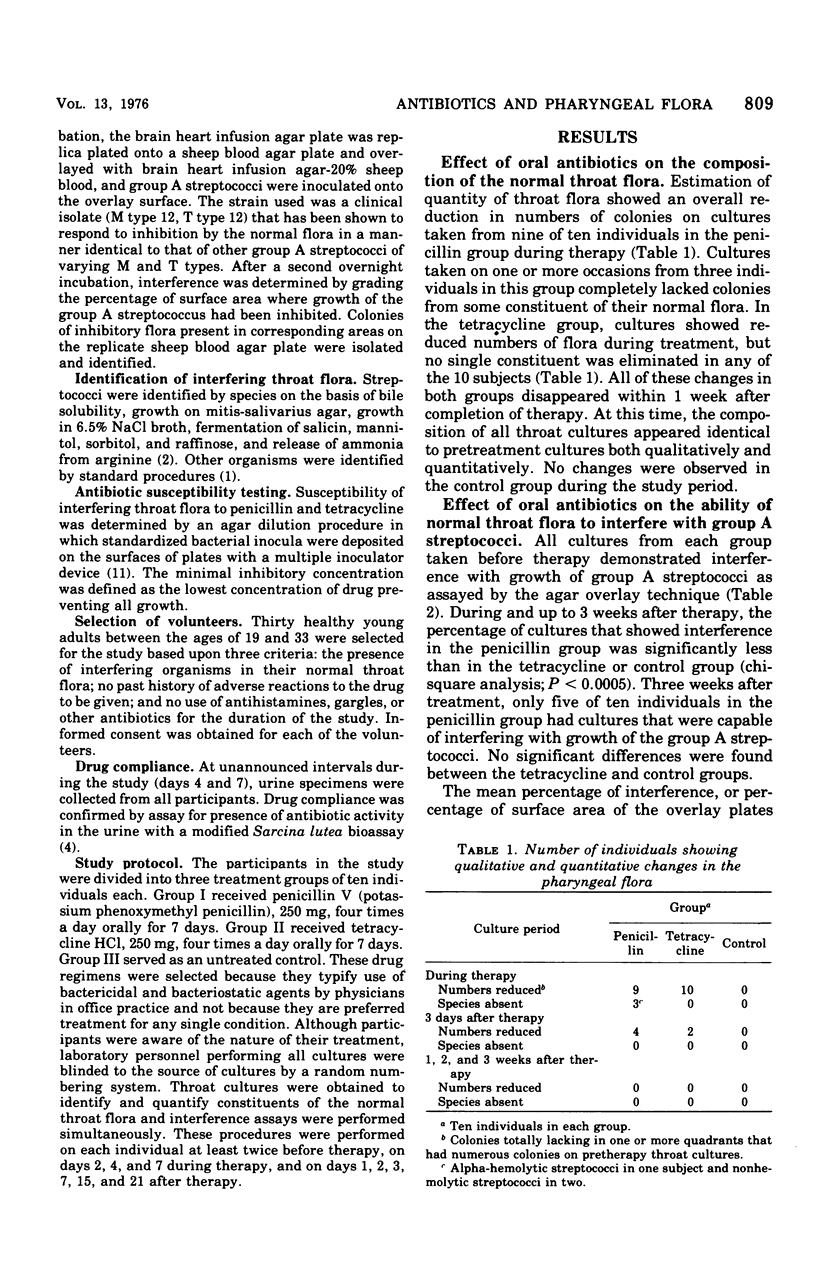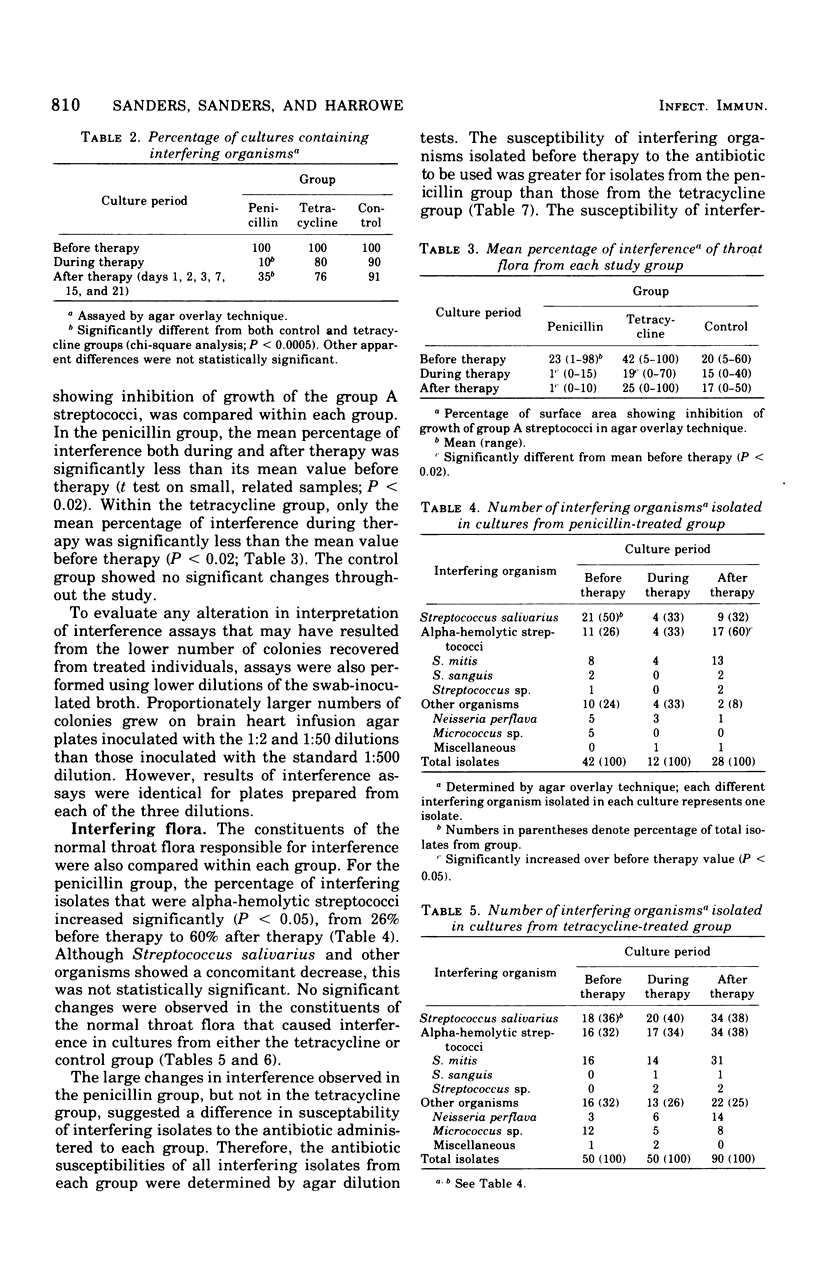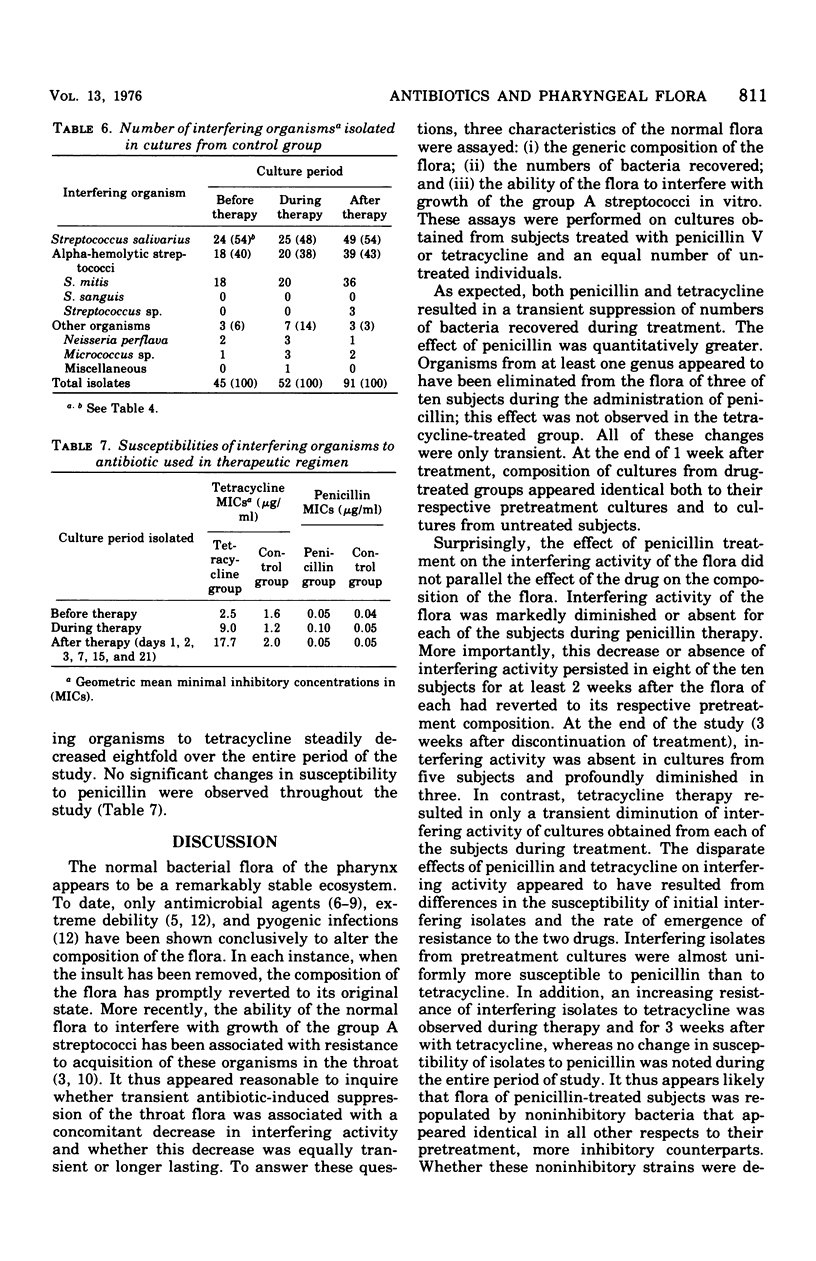Abstract
The effects of orally administered penicillin and tetracycline on the composition of the normal throat flora and its interference with the growth of group A streptococci were evaluated by throat culture and an agar overlay technique. Tetracycline caused only a slight, transient quantitative decrease in the composition of the flora and interference activity. Penicillin caused significant quantitative and qualitative decreases in both the composition of the flora and interference activity. The diminution in interference activity persisted up to 3 weeks after therapy. The differences observed between the antibiotic regimens correlated with differences in initial susceptibility of the flora to the antibiotic used and emergence of the resistance during therapy. Results indicated that although effects of antibiotics on the composition of the flora are transient, effects on its ability to interfere with group A streptococci may persist long after therapy is discontinued. It is thus possible that penicillin therapy may enhance susceptibility of certain individuals to subsequent infection with group A streptococci.
Full text
PDF




Selected References
These references are in PubMed. This may not be the complete list of references from this article.
- Crowe C. C., Sanders W. E., Jr, Longley S. Bacterial interference. II. Role of the normal throat flora in prevention of colonization by group A Streptococcus. J Infect Dis. 1973 Oct;128(4):527–532. doi: 10.1093/infdis/128.4.527. [DOI] [PubMed] [Google Scholar]
- Johanson W. G., Pierce A. K., Sanford J. P. Changing pharyngeal bacterial flora of hospitalized patients. Emergence of gram-negative bacilli. N Engl J Med. 1969 Nov 20;281(21):1137–1140. doi: 10.1056/NEJM196911202812101. [DOI] [PubMed] [Google Scholar]
- LONG D. A. Effect of penicillin on bacterial flora of the mouth. Br Med J. 1947 Nov 22;2(4533):819–821. doi: 10.1136/bmj.2.4533.819. [DOI] [PMC free article] [PubMed] [Google Scholar]
- MEADS M., ROWE W. P., HASLAM N. M. Alterations in the bacterial flora of the throat during oral therapy with aureomycin. AMA Arch Intern Med. 1951 Apr;87(4):533–540. doi: 10.1001/archinte.1951.03810040058003. [DOI] [PubMed] [Google Scholar]
- McCURDY R. S., NETER E. Effects of penicillin and broad-spectrum antibiotics on the emergence of a gram-negative bacillary flora in the upper respiratory tract of infants. Pediatrics. 1952 May;9(51):572–576. [PubMed] [Google Scholar]
- Sanders E. Bacterial interference. I. Its occurrence among the respiratory tract flora and characterization of inhibition of group A streptococci by viridans streptococci. J Infect Dis. 1969 Dec;120(6):698–707. doi: 10.1093/infdis/120.6.698. [DOI] [PubMed] [Google Scholar]
- Tillotson J. R., Finland M. Bacterial colonization and clinical superinfection of the respiratory tract complicating antibiotic treatment of pneumonia. J Infect Dis. 1969 Jun;119(6):597–624. doi: 10.1093/infdis/119.6.597. [DOI] [PubMed] [Google Scholar]
- WEINSTEIN L., GOLDFIELD M., CHANG TE-WEN Infections occurring during chemotherapy; a study of their frequency, type and predisposing factors. N Engl J Med. 1954 Aug 12;251(7):247–255. doi: 10.1056/NEJM195408122510701. [DOI] [PubMed] [Google Scholar]


